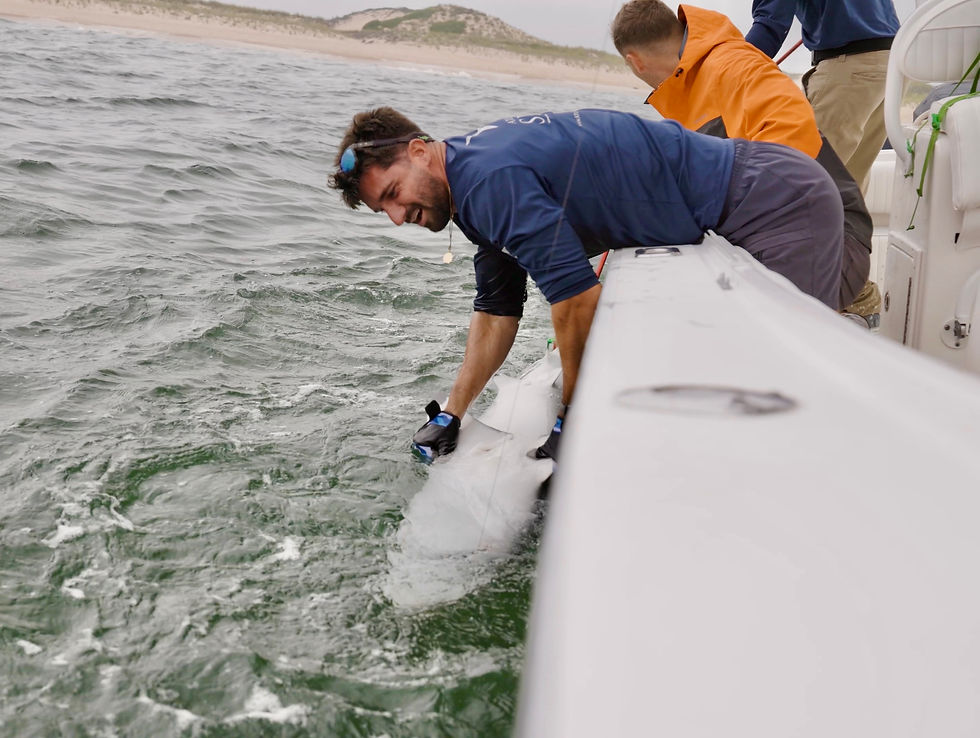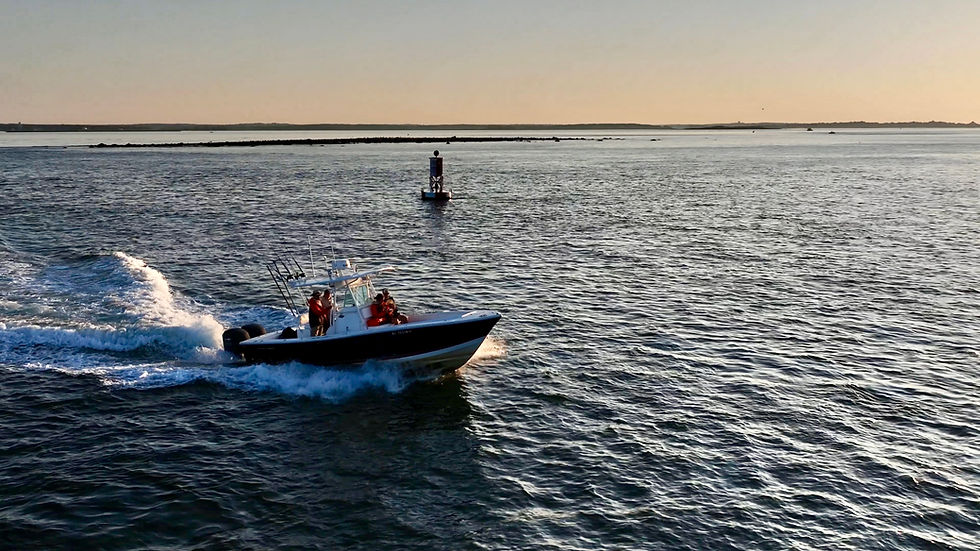We've Been Busy! 2025 Research Season Update
- Atlantic Shark Institute

- Aug 13, 2025
- 2 min read
Thanks to your help, we have had a successful 2025 research season so far - filled with shark tagging, BRUVS research, student scholarships and more!

The 2025 research season has been one of the most productive and exciting yet for the Atlantic Shark Institute (ASI), thanks in large part to the continued support from the Rhode Island shark license plate program. Funds raised through plate purchases have directly supported three graduate students, each pursuing groundbreaking shark research in collaboration with ASI. Their work spans diverse fields of study, from behavioral tracking to population dynamics and ecological modeling — research that is advancing our understanding of these remarkable predators.


A major focus of this year’s fieldwork has been shark tagging. ASI’s research team has been actively tagging mako and blue sharks off the coast of Rhode Island, gathering valuable data on their migration patterns, habitat use, and behavior. These insights will contribute to better-informed conservation strategies for these highly migratory species. Many sharks are tagged with acoustic tags which are detected by the ASI's acoustic array

The institute also participated in a collaborative study with graduate student Jake Berretta, which included the successful tagging of two spinner sharks — a species rarely encountered in local waters. These tags will provide important information on their range, seasonal movements, and potential shifts due to changing ocean conditions.

In addition to its scientific advancements, ASI’s work will soon be showcased to regional audiences. The institute will be featured in a forthcoming film by award-winning filmmaker Tomas Koeck, a production that will air on PBS / PBS Rhode Island. The film will highlight ASI’s field research, conservation efforts, and the people driving its mission forward.


From advancing science to inspiring future marine biologists, the work of ASI in 2025 demonstrates the power of community support and collaboration. Every Rhode Island shark license plate purchased helps fuel more research, more discoveries, and more opportunities for the next generation of ocean scientists.

.png)


